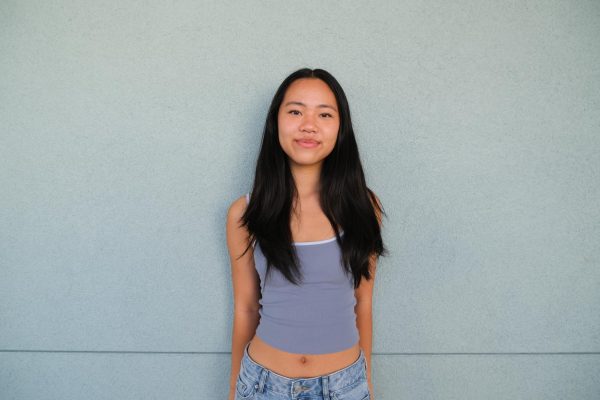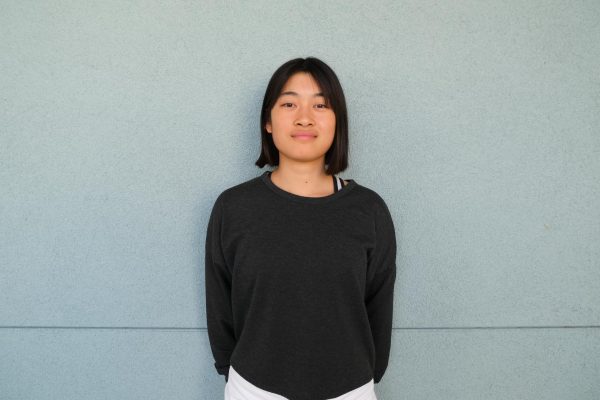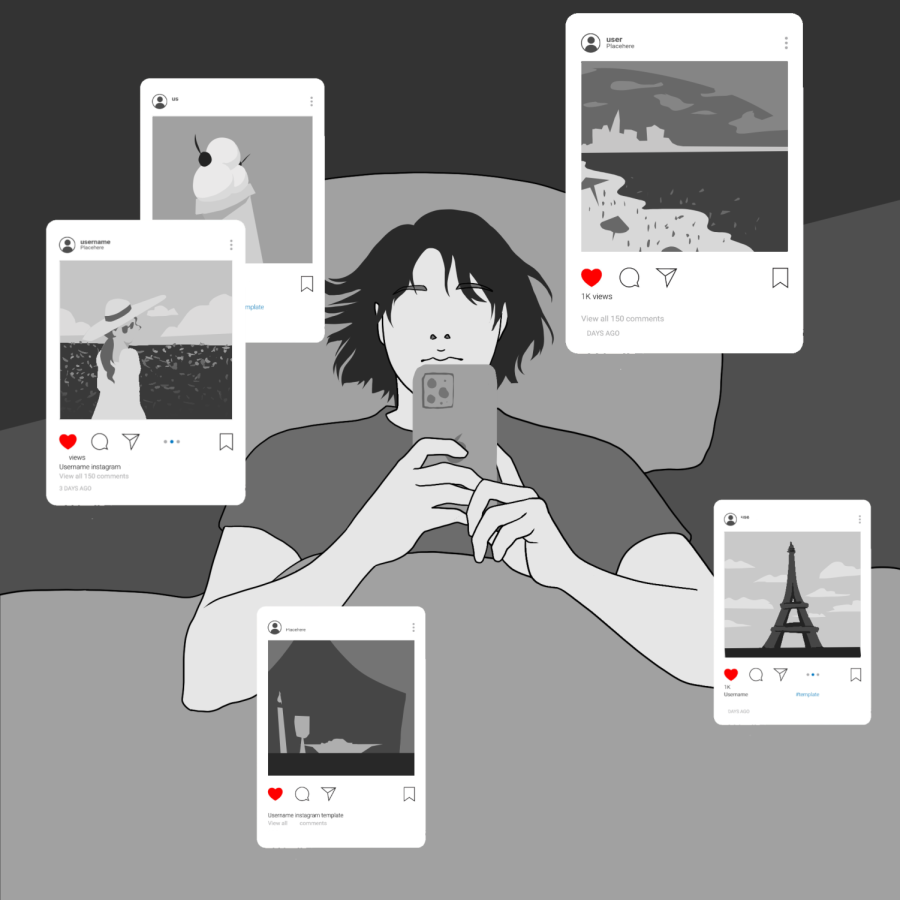Summer break exacerbates social media-induced “fomo”
As summer arrives, Instagram feeds grow cluttered with images of extravagant vacations and beach trips, along with posts about pool parties and picnics that one could only wish to be invited to. The pressure to have a “fun” summer can push people to change their plans to feel less excluded, and cause anxiety when they aren’t able to. This perception of others’ leading better lives and the efforts people take to feel included is dubbed “fear of missing out,” or FOMO. Social media exacerbates FOMO during summer break, when many are spending more time on their phones and participating in social events, This amplified FOMO can harm students’ mental health.
When a person isn’t able to experience something others are, social media can feed into their FOMO and be a constant source of unrealistic comparison. Feelings that are characteristic of FOMO, such as inferiority and exclusion, can worsen because the majority of social media posts only highlight the best parts of a person’s life. These “perfect” portrayals can cause envy or make others feel as if they don’t measure up. The freedom summer break grants further amplifies these aspects: It is likely that students have more time to both go on and post about vacations as well as spend time online scrolling through others’ curations. This dynamic only contributes to a heightened sense of FOMO.
These complex feelings can affect students in a variety of ways. Having one’s appearance or popularity be compared to others’ can harm self-esteem and mental health. Poor mental health often hinders sleep quality, creating a vicious cycle: Focusing on self-care during break requires quality sleep, but FOMO’s negative impact on students’ mental health may prevent them from being able to get this needed rest.
FOMO can also magnify previous depressive symptoms and feelings of loneliness, which are already more common in people who frequently use social media. According to a 2022 study conducted by the International Journal of Environmental Research and Public Health, the risk of depression in adolescents increased 13% for each additional hour spent on social media. The constantly changing atmosphere on social media platforms can pressure many to keep up with the most recent trends and go to the events that they see posts about, which only keeps people on social media for longer, and thus increases anxiety levels.
Furthermore, social media and FOMO can impair students’ ability to form genuine connections with others. Social media always presents others’ relationships in the best light, creating unrealistic expectations of what a friend should be and act like. The desire for these types of connections can strain preexisting relationships as one begins to believe that the only viable bonds are akin to the ones found online. Fear of missing out on a better social life, one without the natural ups and downs any relationship is bound to bring, can prompt some to become overly selective of their friends and dismiss impactful people from their lives. These detrimental effects of FOMO create not only unstable social situations, but feelings of unhappiness stemming from the inability to find a desirable friend.
Despite these drawbacks, having ways to connect with others outside of school is still important, especially during summer break. When people aren’t able to see each other on a day-to-day basis, social media can provide a space to keep in touch. Overuse of social media, however, warps these positive aspects into ones that can harm students. Thus, students must moderate their social media consumption and shift their mindsets to lead healthier lifestyles. Viewing others’ posts as sources of inspiration rather than upward comparison can further diminish the negative effects of social media on mental health.
Too much social media use, especially during the summer, can cause a vicious, unbreakable cycle of FOMO and anxiety, straining mental health during a time of relaxation. Instead of becoming consumed by social media and FOMO, teens should steer clear of elements that exacerbate negative feelings. Taking advantage of the free time summer provides can help foster in-person relationships and allow students to discover interests and passions that don’t create harmful environments.
Your donation will support the student journalists of Henry M. Gunn High School. Your contribution will allow us to purchase equipment and cover our annual website hosting costs.

Junior Anne Dong is a managing editor for The Oracle. In her free time, she likes listening to music, reading and rewatching movies from the 2000s.

Senior Sarah Xie is the graphics editor for The Oracle. She loves all things bread and, if she is not in the kitchen, she is absorbed in the latest chapters...


